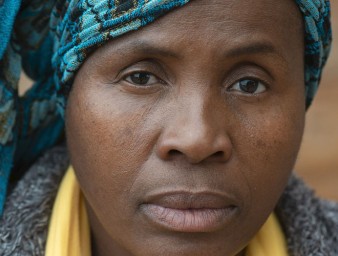Making human rights a priority for business
19 December 2012

“I know that many of you have travelled from afar to join this global exchange on trends and challenges in the implementation of the UN Guiding Principles on Business and Human Rights,” UN Human Rights Chief Navi Pillay said in her keynote statement during the opening session of the UN Human Rights Council’s Forum on Business and Human Rights in Geneva.
“The overwhelming interest in this Forum is a sign of the imperative felt by all sides, including business, of preventing and addressing adverse human rights impacts linked to business activities,” she said.
About 1,000 participants attended the inaugural Forum representing 85 countries, including 50 State delegations, 150 companies and 180 civil society organizations, as well as other groups, with equal participation of men and women. Participants included directly affected stakeholders and their representatives, including many representatives of indigenous peoples. From the business sector, a number of major multinational corporations participated from the industries of mining, oil and energy, technology, chemicals, banking and finance, electronics, and textiles.
“The value of hearing the voices directly affected or involved in the implementation process, be it from business, from government or from civil society and impacted communities, is that our discussions here in Geneva reflect the actual challenges, good practice and lessons learned on the ground,” Pillay said.
The Forum was prepared under the leadership of the UN Working Group on Business and Human Rights and was established as a global platform for all relevant stakeholders to promote the implementation of the Guiding Principles on Business and Human Rights. These Guiding Principles adopted in 2011 by the Human Rights Council, are the first globally accepted standards on the responsibilities of States and businesses for preventing and addressing business-related human rights abuse.
Puvan Selvanathan, Chairperson of the Working Group, said that the Working Group had sought to ensure a broad and balanced participation of stakeholders in the Forum in order to maximize its potential for creating spinoffs at the wider international, regional and national levels. He added that the discussions at the Forum will not only contribute to the effective implementation of the Guiding Principles by States and businesses, but also help to bring new actors into the broader business and human rights agenda such as, small and medium enterprises, as well as promote dialogue and cooperation between stakeholders.
“The Guiding Principles are key to providing business with predictability in their operations, and providing clarity as to the obligations and responsibilities of all actors, in their different roles, in addressing and remedying those adverse impacts,” he said.
Laura Dupuy Lasserre, President of the Human Rights Council, added that the two-day Forum served as a unique opportunity for the global community to exchange information and explore the challenges of implementing the Guiding Principles.
“The balanced approach of focusing on all three pillars of the Guiding Principles, as well as the geographical and gender balance in the composition of the various panels are to be welcomed, and they provide with an opportunity to discuss on multiple topics,” Lasserre said.
Professor John Ruggie, Chairperson of the first Forum, who led the process to develop the Guiding Principles, explained that they were a response to meet the governance gaps created by globalization: new realities where States are no longer the only important actors in global governance and gaps between the reach and impact of economic forces and the capacity of societies to manage the adverse consequences of business activities.
“In a nutshell, the Guiding Principles prescribe paths for strengthening and better aligning public governance with social compliance mechanisms and corporate governance in relation to business and human rights,” Ruggie said. “They aim to generate a mutually reinforcing dynamic that produces cumulative change.”
Sandra Polaski, Deputy Director-General for Policy at the International Labour Organization, who spoke at the high-level opening of the Forum, highlighted the Forum as an important milestone in the work of business and human rights.
“It is the next step in a remarkable journey for the human rights community, for business and for governments with the active participation of so many stakeholders,” she said.
19 December 2012

VIEW THIS PAGE IN:



